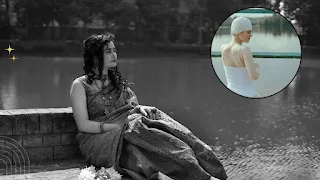For centuries, rivers in India have served not just as geographical features, but as sacred spaces deeply woven into the cultural fabric. One such practice – river bathing – holds immense significance for many Indian women, transcending mere hygiene.
A Spiritual Act:
Hinduism, the religion practiced by a majority of Indians, considers rivers sacred. Taking a dip in a river is seen as a way to cleanse not just the body, but also the soul. The belief is that the flowing water carries away sins and impurities, allowing for a fresh spiritual start.
The Ganges: A River of Reverence:
Among Indian rivers, the Ganges holds a particularly holy status. Millions of women, particularly during festivals like Kumbh Mela, undertake pilgrimages to bathe in its waters. The belief is that a dip in the Ganges washes away karmic debt and brings blessings.
Beyond Religion: A Celebration of Life:
River bathing isn't solely a religious practice. For many women, it's a social occasion. They gather at ghats (bathing steps) to bathe, socialize, and share stories. This fosters a sense of community and belonging.
Read More: What Women Want
Ayurvedic Benefits:
Traditionally, Ayurveda, India's ancient system of medicine, emphasizes the therapeutic properties of natural elements. Bathing in flowing river water is believed to stimulate blood circulation, improve skin health, and promote overall well-being.
A Look at Modernity:
While urbanization and changing lifestyles have impacted the frequency of river bathing, the practice continues to hold significance. Many women still visit rivers for religious ceremonies or simply to reconnect with their roots and cultural heritage.
Respecting the Environment:
It's important to acknowledge the environmental challenges faced by some Indian rivers. Pollution is a growing concern. As the tradition of river bathing continues, efforts towards river cleanliness and conservation are crucial.
By exploring the historical, religious, social, and even health-related aspects of river bathing, this article provides a rich understanding of this enduring tradition in the lives of Indian women.








